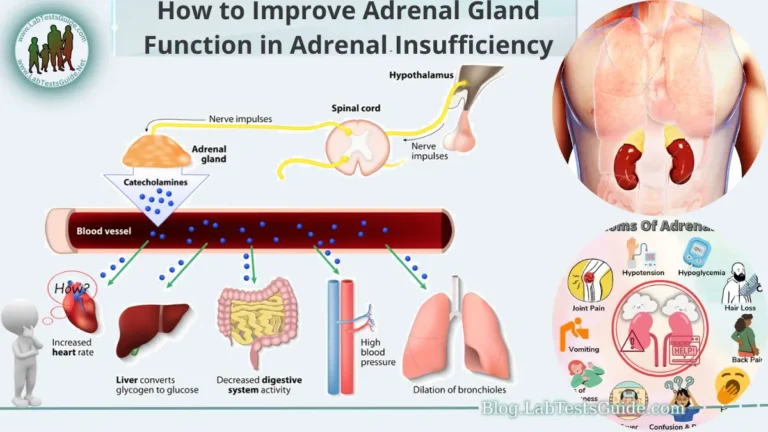Pregnancy is a miraculous journey filled with joy and anticipation, but it can also come with its fair share of challenges. One common discomfort experienced by many expectant mothers is pregnancy heartburn. Characterized by a burning sensation in the chest and throat, pregnancy heartburn is caused by hormonal changes and the pressure of the growing uterus on the stomach. While it is a temporary condition that usually resolves after childbirth, dealing with heartburn during pregnancy can be bothersome and impact overall well-being. In this guide, we will explore various strategies and lifestyle modifications to help ease pregnancy heartburn, allowing mothers-to-be to enjoy this special time with greater comfort and ease.

Understanding the factors contributing to pregnancy heartburn is the first step towards finding effective relief. We will delve into the root causes of this condition and explain why it is prevalent during pregnancy. From there, we will explore a range of practical and natural remedies that can be easily incorporated into daily routines. These remedies include dietary adjustments, heartburn-friendly foods, and the incorporation of herbal aids. Additionally, we will discuss over-the-counter medications that can provide temporary relief, always emphasizing the importance of seeking medical advice for individualized care. By the end of this guide, expectant mothers will be equipped with a comprehensive toolkit to tackle pregnancy heartburn, allowing them to focus on the joys of impending motherhood with a renewed sense of comfort and well-being.
What Is Pregnancy Heartburn:
- Pregnancy heartburn, also known as acid reflux or gastroesophageal reflux (GERD), is a common digestive condition experienced by expectant mothers.
- It is characterized by a burning sensation in the chest and throat, often accompanied by regurgitation of stomach acid into the esophagus.
- Pregnancy heartburn is caused by a combination of hormonal changes and physical factors. The hormone progesterone, which relaxes smooth muscles, including the lower esophageal sphincter (LES), can lead to increased acid reflux.
- As the pregnancy progresses, the growing uterus exerts pressure on the stomach, further contributing to the relaxation of the LES and the reflux of stomach contents.
- Symptoms of pregnancy heartburn may include a burning sensation behind the breastbone, chest pain, a sour taste in the mouth, and discomfort after eating.
- The condition is more prevalent during the second and third trimesters of pregnancy but can occur at any stage.
- While pregnancy heartburn is typically considered a temporary discomfort, it can significantly impact the quality of life for some expectant mothers.
- Lifestyle modifications such as eating smaller, more frequent meals, avoiding trigger foods, and maintaining good posture while eating can help alleviate symptoms.
- Incorporating heartburn-friendly foods and natural remedies like ginger, slippery elm, chamomile tea, and aloe vera juice may provide relief.
- In some cases, healthcare providers may recommend over-the-counter antacids, H2 blockers, or proton pump inhibitors (PPIs) to manage severe or persistent heartburn.
- It’s crucial for pregnant individuals experiencing persistent or severe heartburn to consult their healthcare providers to ensure appropriate treatment and avoid potential complications.
How to Prevent Pregnancy Heartburn:
Here are some effective strategies to help minimize and prevent pregnancy heartburn.
- Eat Smaller, More Frequent Meals: Instead of consuming large meals, opt for smaller portions throughout the day. Eating smaller meals can reduce the pressure on the stomach, preventing acid reflux.
- Avoid Trigger Foods: Identify and avoid foods that tend to trigger heartburn. Common culprits include spicy, greasy, fatty, and acidic foods. Chocolate, citrus fruits, tomatoes, and caffeine are also known to exacerbate heartburn.
- Stay Upright After Eating: Avoid lying down immediately after meals. Remaining upright for at least 2-3 hours after eating can help gravity keep stomach acids down, reducing the risk of reflux.
- Elevate Your Upper Body While Sleeping: Elevate the head of your bed by about 6-8 inches using pillows or blocks. This angle can help prevent stomach acid from flowing into the esophagus during sleep.
- Choose Heartburn-Friendly Foods: Incorporate foods that are less likely to trigger heartburn. Examples include whole grains, lean proteins, vegetables (except for triggers like onions and garlic), and non-citrus fruits.
- Practice Good Posture While Eating: Sit up straight while eating and avoid slouching. Maintaining proper posture can help keep stomach acids where they belong.
- Avoid Drinking Large Amounts of Fluids with Meals: Drinking excessive fluids during meals can cause the stomach to expand, increasing pressure and the likelihood of reflux. Instead, drink fluids between meals.
- Chew Food Thoroughly: Chewing food slowly and thoroughly aids digestion and reduces the chance of swallowing excess air, which can contribute to heartburn.
- Manage Stress: High stress levels can exacerbate heartburn symptoms. Engage in relaxation techniques, such as deep breathing, meditation, or prenatal yoga, to help manage stress.
- Wear Loose-Fitting Clothing: Tight clothing around the waist and abdomen can put pressure on the stomach, promoting reflux. Choose loose, comfortable clothing during pregnancy.
- Consult with Your Healthcare Provider: If you experience persistent or severe heartburn, consult your healthcare provider for personalized advice. They may recommend safe antacids or other suitable medications if necessary.
Understanding Pregnancy Heartburn:
- Hormonal Changes: During pregnancy, the body experiences increased levels of the hormone progesterone. This hormone helps relax smooth muscles, including the lower esophageal sphincter (LES), which is responsible for preventing stomach acid from flowing back into the esophagus. The relaxation of the LES can lead to increased acid reflux, causing heartburn.
- Physical Factors: As the pregnancy progresses, the growing uterus exerts pressure on the stomach. This pressure can push stomach contents upward, further contributing to acid reflux and heartburn symptoms.
- Common Symptoms: Pregnancy heartburn is characterized by a burning sensation in the chest and throat, which may be accompanied by a sour or acidic taste in the mouth. Expectant mothers may also experience chest pain or discomfort after eating.
- Timing of Occurrence: Pregnancy heartburn is more prevalent during the second and third trimesters due to increased hormonal changes and the growing size of the uterus. However, it can occur at any stage of pregnancy.
- Impact of Diet: Certain foods can trigger or worsen pregnancy heartburn. Spicy, greasy, fatty, and acidic foods, as well as chocolate, caffeine, citrus fruits, and tomatoes, are common triggers.
- Lifestyle Modifications: Making simple lifestyle adjustments can help alleviate heartburn symptoms. Eating smaller, more frequent meals, staying upright after eating, and avoiding lying down immediately after meals are effective strategies.
- Sleep Position: Elevating the upper body while sleeping by using pillows or raising the head of the bed can help prevent stomach acid from flowing into the esophagus during sleep.
- Heartburn-Friendly Foods: Choosing foods that are less likely to trigger heartburn, such as whole grains, lean proteins, vegetables (except for triggers like onions and garlic), and non-citrus fruits, can be beneficial.
- Chewing and Stress Management: Chewing food thoroughly aids digestion and reduces the chance of swallowing excess air, which can contribute to heartburn. Managing stress levels through relaxation techniques can also help alleviate symptoms.
- Consulting Healthcare Provider: If pregnant individuals experience persistent or severe heartburn, it is essential to consult their healthcare provider. The provider may recommend safe antacids or other suitable medications for management.
Lifestyle Changes to Reduce Heartburn:
Here are some effective lifestyle modifications to help alleviate and prevent heartburn.
- Eat Smaller, More Frequent Meals: Opt for smaller meals throughout the day instead of large, heavy ones. Eating smaller portions can ease the pressure on the stomach, reducing the likelihood of acid reflux.
- Avoid Trigger Foods: Identify and avoid foods that tend to trigger heartburn. Common culprits include spicy, greasy, fatty, and acidic foods. Chocolate, caffeine, citrus fruits, tomatoes, and onions are also known to exacerbate heartburn.
- Maintain Good Posture While Eating: Sit up straight while eating and avoid slouching. This helps keep the esophagus and stomach aligned, reducing the risk of acid reflux.
- Stay Upright After Meals: Refrain from lying down immediately after eating. Remaining upright for at least 2-3 hours after meals allows gravity to keep stomach acids down and reduces the chance of reflux.
- Sleep Position: Elevate the head of your bed by about 6-8 inches using pillows or bed risers. This elevated angle helps prevent stomach acid from flowing into the esophagus during sleep.
- Choose Heartburn-Friendly Foods: Incorporate foods that are less likely to trigger heartburn. Examples include whole grains, lean proteins, vegetables (except for triggers like onions and garlic), and non-citrus fruits.
- Hydration Habits: Avoid drinking large amounts of fluids with meals, as this can cause the stomach to expand and put pressure on the LES. Instead, drink fluids between meals.
- Chew Food Thoroughly: Chew food slowly and thoroughly to aid digestion and reduce the chances of swallowing excess air, which can contribute to heartburn.
- Manage Stress: High stress levels can worsen heartburn symptoms. Engage in relaxation techniques like deep breathing, meditation, or prenatal yoga to manage stress effectively.
- Clothing Choices: Avoid wearing tight-fitting clothing around the waist and abdomen, as it can put pressure on the stomach, promoting reflux. Choose loose, comfortable clothing during pregnancy.
Diet Modifications:
Here are some helpful dietary changes to alleviate pregnancy heartburn.
- Heartburn-Friendly Foods: Incorporate foods that are less likely to trigger heartburn and are gentle on the digestive system. Focus on consuming whole grains like oats, brown rice, and quinoa, as well as lean proteins such as poultry, fish, and tofu.
- Non-Citrus Fruits: Opt for non-citrus fruits like bananas, apples, pears, and melons, which are generally better tolerated and less likely to trigger heartburn.
- Vegetables: Most vegetables are well-tolerated, except for potential triggers like onions, garlic, and spicy peppers. Consider steaming or roasting vegetables rather than frying them to minimize irritation.
- Low-Fat Dairy: Choose low-fat or non-fat dairy products, such as yogurt and milk. High-fat dairy can lead to increased acid production and worsen heartburn symptoms.
- Avoid Trigger Foods: Identify and avoid foods that commonly trigger heartburn, such as spicy foods, fried foods, fatty meats, chocolate, caffeine, citrus fruits, tomatoes, and mint.
- Eat Slowly and Mindfully: Take your time to eat, and chew food thoroughly. Eating slowly can help prevent overeating and reduce the risk of swallowing excess air, which can contribute to heartburn.
- Limit Carbonated Beverages: Carbonated drinks can contribute to bloating and increase pressure on the stomach, leading to acid reflux. Opt for water or herbal, non-caffeinated teas instead.
- Moderate Caffeine Intake: Limit caffeine consumption, as it can relax the LES and promote acid reflux. Consider switching to decaffeinated alternatives or herbal teas.
- Avoid Eating Before Bedtime: Refrain from eating large meals close to bedtime. Allow at least 2-3 hours for digestion before lying down to reduce the risk of nighttime heartburn.
- Stay Hydrated: Drink plenty of water throughout the day to maintain hydration. Proper hydration can help with digestion and minimize the concentration of stomach acid.
- Smaller Portions: Opt for smaller, more frequent meals to prevent overeating and reduce pressure on the stomach, minimizing the chances of heartburn.
- Keep a Food Diary: Tracking your diet and noting any foods that trigger heartburn can help you identify and avoid specific triggers more effectively.
Natural Remedies for Pregnancy Heartburn:
Here are some natural options to consider.
- Ginger: Ginger has natural anti-inflammatory properties that can help soothe the digestive system and reduce heartburn. Consider consuming ginger tea or adding fresh ginger to your meals.
- Slippery Elm: Slippery elm is an herbal supplement that forms a soothing gel-like substance when mixed with water. It can help coat the esophagus and reduce irritation caused by stomach acid.
- Chamomile Tea: Chamomile tea has calming properties that can help relax the digestive tract and alleviate heartburn symptoms. Enjoy a cup of warm chamomile tea after meals.
- Aloe Vera Juice: Aloe vera juice can help soothe the esophagus and reduce inflammation. Make sure to use pure aloe vera juice without added sugars or artificial ingredients.
- Marshmallow Root: Marshmallow root contains mucilage, which forms a protective layer in the esophagus and stomach, reducing the impact of stomach acid on the sensitive lining.
- Papaya: Papaya contains enzymes (papain) that aid in digestion and can reduce the risk of heartburn. Enjoy fresh papaya as a snack or incorporate it into smoothies.
- Yogurt: Probiotic-rich yogurt can help promote a healthy gut environment and aid in digestion, potentially reducing heartburn symptoms.
- Almonds: Almonds are alkaline in nature and can help neutralize stomach acid. Snack on a small handful of raw almonds to ease heartburn.
- Baking Soda: A small amount of baking soda mixed with water can act as an antacid and provide temporary relief from heartburn. However, use this remedy sparingly, as excessive use can lead to electrolyte imbalances.
- Apple Cider Vinegar: Although counterintuitive, some people find relief from heartburn by diluting a teaspoon of apple cider vinegar in water and drinking it before meals. However, individual responses may vary, so use this remedy with caution.
Over-the-Counter Medications:
Here are some common OTC medications for pregnancy heartburn.
- Antacids: Antacids are OTC medications that provide quick relief by neutralizing stomach acid. They come in various forms, such as chewable tablets, liquid suspensions, or effervescent powders. Common antacid ingredients include calcium carbonate, magnesium hydroxide, and aluminum hydroxide.
- H2 Blockers: Histamine H2-receptor blockers, or H2 blockers, work by reducing the production of stomach acid. They provide longer-lasting relief compared to antacids. Examples of H2 blockers include ranitidine (Zantac) and famotidine (Pepcid).
- Proton Pump Inhibitors (PPIs): PPIs are potent acid-reducing medications that block acid production in the stomach. They are typically used for more severe cases of heartburn. Examples of PPIs include omeprazole (Prilosec) and lansoprazole (Prevacid).
When considering OTC medications for pregnancy heartburn:
- Always consult your healthcare provider before using any medication during pregnancy, including OTC ones.
- Choose medications that are labeled as safe for use during pregnancy, or those recommended by your healthcare provider.
- Follow the recommended dosage instructions and do not exceed the stated dose.
- Avoid using multiple heartburn medications simultaneously without medical guidance.
- Inform your healthcare provider about any existing medical conditions or other medications you are taking to avoid potential interactions.
Avoiding Heartburn Triggers in Everyday Life:
Here are practical tips to help you manage heartburn triggers.
- Identify Personal Triggers: Keep a food diary to identify specific foods and beverages that trigger your heartburn. Once you identify them, minimize or eliminate their consumption from your diet.
- Practice Portion Control: Overeating can put extra pressure on the stomach, leading to increased reflux. Eat smaller, more frequent meals to avoid overloading the digestive system.
- Avoid Trigger Foods: Steer clear of common heartburn triggers such as spicy, greasy, fatty, and acidic foods. Also, limit or avoid chocolate, caffeine, citrus fruits, tomatoes, and onions.
- Stay Upright After Meals: Remain in an upright position for at least 2-3 hours after eating. This allows gravity to help keep stomach acids down, reducing the likelihood of reflux.
- Sleep with an Elevated Upper Body: Use extra pillows to prop up the upper body while sleeping. An elevated position can help prevent stomach acid from flowing into the esophagus during the night.
- Avoid Tight-Fitting Clothing: Tight clothes around the waist and abdomen can increase pressure on the stomach and trigger heartburn. Opt for loose-fitting, comfortable clothing.
- Manage Stress: Stress and anxiety can exacerbate heartburn symptoms. Engage in relaxation techniques, such as deep breathing, meditation, or gentle exercises like prenatal yoga.
- Limit Carbonated and Caffeinated Beverages: Carbonated drinks and caffeinated beverages can contribute to heartburn. Choose water or herbal, non-caffeinated teas as alternatives.
- Chew Thoroughly: Eating slowly and chewing food thoroughly aids digestion and reduces the chances of swallowing excess air, which can trigger heartburn.
- Avoid Large Meals Before Bedtime: Eating large meals close to bedtime can worsen nighttime heartburn. Allow enough time for digestion before lying down.
- Stay Hydrated Between Meals: Drinking fluids between meals rather than during them can reduce pressure on the stomach and minimize the risk of heartburn.
- Use Natural Remedies Wisely: If you choose to use natural remedies or supplements, do so under the guidance of a healthcare provider to ensure safety and effectiveness.
FAQs:
Is heartburn common during pregnancy?
Yes, heartburn is a prevalent discomfort during pregnancy, especially in the second and third trimesters. It is estimated that around 50-80% of pregnant individuals experience heartburn at some point during their pregnancy.
What causes heartburn during pregnancy?
Heartburn during pregnancy is caused by hormonal changes, particularly increased levels of progesterone, which relax the lower esophageal sphincter (LES). Additionally, the growing uterus puts pressure on the stomach, leading to acid reflux.
Can heartburn harm the baby?
Generally, heartburn itself does not harm the baby. However, severe or untreated acid reflux could lead to complications, such as poor weight gain, feeding issues, or respiratory problems for the baby.
What foods should I avoid to prevent heartburn?
It’s advisable to avoid trigger foods that commonly cause heartburn. These include spicy, greasy, fatty, and acidic foods, as well as chocolate, caffeine, citrus fruits, tomatoes, and onions.
Are antacids safe to take during pregnancy?
Antacids are generally considered safe for occasional use during pregnancy. However, it’s essential to check with your healthcare provider before using any medications, including antacids, to ensure they are safe for your specific situation.
How can I relieve heartburn naturally during pregnancy?
Natural remedies like ginger, slippery elm, chamomile tea, aloe vera juice, and marshmallow root can offer relief from heartburn. Chewing food thoroughly, maintaining good posture while eating, and avoiding tight-fitting clothing are also helpful.
Can I take over-the-counter medications for heartburn during pregnancy?
Some over-the-counter medications, such as antacids, H2 blockers, and certain proton pump inhibitors (PPIs), may be considered safe during pregnancy. However, always consult your healthcare provider before using any medication to ensure safety and appropriateness.
When should I seek medical attention for heartburn during pregnancy?
If you experience severe or persistent heartburn that doesn’t improve with lifestyle changes or over-the-counter medications, or if you notice any concerning symptoms like difficulty swallowing or unexplained weight loss, it’s essential to consult your healthcare provider for evaluation and guidance.
Will heartburn go away after pregnancy?
In most cases, heartburn improves or resolves after childbirth as hormonal levels return to normal, and the pressure on the stomach decreases. However, for some individuals, heartburn may persist beyond pregnancy, and they may need further management.
Conclusion:
In conclusion, pregnancy heartburn is a common discomfort experienced by many expectant mothers due to hormonal changes and the pressure of the growing uterus on the stomach. While it is a temporary condition that typically improves after childbirth, it can significantly impact a pregnant individual’s quality of life. By implementing lifestyle changes such as eating smaller, more frequent meals, avoiding trigger foods, and maintaining good posture while eating, along with incorporating heartburn-friendly foods and natural remedies like ginger and chamomile tea, expectant mothers can find relief from heartburn symptoms. Additionally, the cautious use of over-the-counter medications, under the guidance of a healthcare provider, can provide further support. As every pregnancy is unique, consulting a healthcare provider for personalized advice and monitoring is crucial to ensure a safe and healthy journey through pregnancy while managing heartburn effectively.






